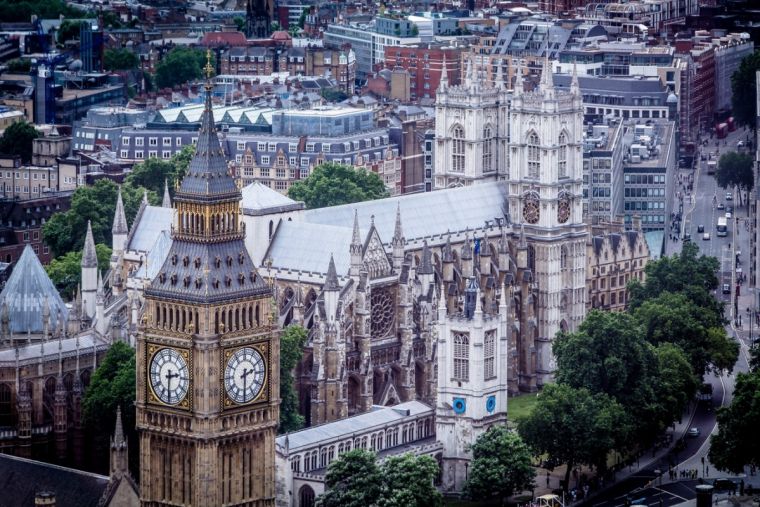The State, freedom of conscience and civil disobedience

The state and the Church have a history in our country. The relationship status might read "it's complicated". It ranges from the conversion and Christianization of the state to the deepest antipathy of the State and its persecution of the Church.
Even when Christian, the Church has had to challenge the state. Becket took on Henry II and won. It cost him his life, but he won.
Thomas More took on Henry VIII. It cost him his life. While he won the moral argument he lost the legal and political one.
The narrative in this country is of course set in the far wider and more complex contest for a system of values fought in a variety of states with a variety of aspects of the Church.
Glancing from the dynamics of Daniel and Nebuchadnezzar, through the Maccabees up to Bonhoeffer and Hitler, Solzhenitsyn and Stalin, the contest for setting the values by which human beings live, across states and cultures, defines one of the most powerful narratives in human history.
The pendulum swings from benign to malign.
In our day we are moving with some speed towards the malign. Any reading of 20th century history demonstrates a three-cornered fight between two totalitarian ambitions, Marxism and Fascism, and Christianity. All three make absolutist claims on humanity that are irreconcilable. The anaemic relativism of our decaying culture in the West disguises the sharp and brutal quality of the contest.
Christians are rightly wary that in the 21st century there is no reason for thinking that the contest has been suspended. Fascism's toll of Christians (and Jews) in Germany and Spain was horrendous but dwarfed by the toll wreaked by the Soviet Union and Marxist China.
In each period of attrition, the sign that the struggle to the death had begun was the control of Churches and worship by the authorities.
The beginning of this century has exposed the oncoming depth and intensity of a cultural revolution of values that are inimical to the faith in the west and suddenly out of nowhere, for medical rather than political reasons, the state suddenly closes the churches and prohibits worship.
There are three patterns of Christian response. The first is the highly secularized and spiritually incompetent one, which says, "Places don't matter; your private thoughts are everything, corporate worship is overrated. We are not worrying about the implications for a weakened church losing financial and philosophical traction becoming ever more bankrupt in both. There is nothing to see here, move on, don't fuss."
The second response, more literate historically but still underdeveloped spiritually says, "Yes it's a terrible sign that the churches have been down unilaterally. Yes, it looks authoritarian and apocalyptic, but check out the facts. It was a pandemic. It was medicine and science, not politics. Calm down. Nothing to worry about."
The third group is more inclined to the view, "If it walks like a duck, looks like a duck and quacks like a duck, it may well be a duck."
There is no value-free science; everything has a political dimension; more importantly, everything has a spiritual temperature, character and metaphysical flavour or dynamic. Whether there was intentionality or not, the state took upon itself the right to close churches, prohibit worship and deny the autonomy of personal choice and informed conscience. And although this was a temporary measure (it seems) it set a precedent which should have been exposed, challenged and repudiated.
This is not the place to argue that the science on singing, water droplets and infection is contested, as is the nature of the virus itself. But it is the place to make common cause with Lord Sumtion and vociferously claim that civil liberties require us to make a distinction between those who want to withdraw from public life in order to protect themselves in a situation that is scientifically and medically ambiguous, and those who chose to take certain risks congruent with a personal value system and the dictates of their conscience.
It is the place to say that Christians do not recognise the power or authority of the state to prohibit gathering for worship in ways that are not medically or scientifically lethal or antisocial.
It is the place for insisting that the bar the state has to cross to outlaw worship, close churches and outrage Christian conscience is considerably, perhaps impossibly, higher than the secular state recognises.
It is therefore a legal and moral duty for the Church to challenge the jurisprudential and ethical authority of the state to have set a precedent in the authoritarian closing of churches and prohibition of worship.
It is for this reasons that Christian Concern and a number of Church leaders (amongst whom I am the least) have issued a challenge to the government by means of judicial review to test the legality of this programme of church closure.
Further, if the legal challenge should be lost, many of us believe that Christians could argue that we had a moral and ethical duty to refuse to acknowledge the legitimacy of unjust law that not only acted as a threat to civil rights and liberties that our forebears fought so hard to defend, but also struck at the heart of our religious, spiritual and moral allegiance and identity.
Gavin Ashenden was a Church of England priest and Chaplain to the Queen before being received into the Roman Catholic Church in December 2019. He blogs about church and current affairs at https://ashenden.org/
Views and opinions published in Christian Today are those of the authors and do not necessarily reflect the views of the website.











